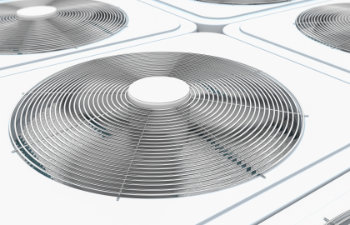
When it comes to HVAC systems for surgery and MRI centers, there are a number of special considerations that must be considered to ensure the safety, comfort and efficiency of these critical medical facilities. The unique requirements of these spaces necessitate HVAC solutions that go above and beyond standard commercial applications.
Aeras Building Solutions in Atlanta shares some key considerations for designing and maintaining HVAC systems in surgery and MRI centers.
Air Quality and Sterility
One of the most critical considerations for surgery and MRI center HVAC systems is maintaining air quality and sterility. Surgical suites require high levels of air cleanliness to minimize the risk of surgical site infections. This involves using specialized filtration systems to remove contaminants from the air and maintain a sterile environment.
Similarly, MRI centers require strict control over air quality to ensure that airborne particles do not interfere with the sensitive equipment. Additionally, maintaining the proper balance of humidity is crucial in these environments to prevent the growth of mold and bacteria, which could compromise air quality and patient safety.
Temperature Control and Comfort
Another important consideration for surgery and MRI center HVAC systems is the precise control of temperature and humidity levels. Surgical suites and MRI rooms must be maintained at specific temperature ranges to ensure both patient comfort and the optimal performance of medical equipment.
Operating rooms, for example, often require higher air exchange rates and temperature control to manage the heat generated by surgical equipment and maintain a comfortable environment for medical staff. MRI machines also generate heat and require careful climate control to ensure their proper function and the comfort of patients undergoing scans.
Minimizing Electromagnetic Interference
In MRI centers, HVAC systems must be carefully designed to minimize electromagnetic interference (EMI) with sensitive imaging equipment. This involves selecting HVAC components and materials that are non-magnetic and will not disrupt the operation of the MRI machine.
Additionally, the placement and orientation of HVAC ductwork and equipment must be strategically planned to avoid any potential interference with the magnetic fields generated by the MRI system.
Noise Control
Surgery and MRI centers require quiet and peaceful environments to facilitate patient healing and comfort, as well as to ensure the accurate operation of medical equipment. HVAC systems in these facilities must be designed to minimize noise levels and vibrations that could disrupt surgical procedures or interfere with MRI imaging. This may involve the use of sound-attenuating materials, vibration isolation methods and careful equipment selection to ensure that HVAC operations do not create excessive noise within the facility.
Energy Efficiency and Sustainability
Energy efficiency and sustainability are also important aspects of HVAC system design for surgery and MRI centers. These facilities typically have high energy demands due to the need for precise air quality and temperature control. Implementing energy-efficient HVAC solutions, such as high-efficiency filtration systems, variable speed drives and energy recovery systems, can help to reduce operational costs and minimize the environmental impact of these critical medical facilities.
HVAC Services For Surgery & MRI Centers
The design and maintenance of HVAC systems for surgery and MRI centers require a thorough understanding of the unique challenges and requirements of these specialized environments. Aeras Building Solutions HVAC professionals can ensure that surgery and MRI centers provide the safe, comfortable and effective environments necessary for delivering quality medical care.
Contact us today to learn more.
Posted on behalf of
